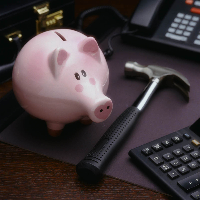 No matter how brilliant a business idea might be, no matter how eloquent the business plan, certain deal breakers will stop it in its tracks. Deal breakers are the secrets you would rather not share with your business analyst or banker, though you probably should.
No matter how brilliant a business idea might be, no matter how eloquent the business plan, certain deal breakers will stop it in its tracks. Deal breakers are the secrets you would rather not share with your business analyst or banker, though you probably should.
If you are preparing your business plan in order to apply for a loan to start or grow a business, here are some common deal breakers you should know about:
1. Inadequate Equity. You have undoubtedly heard gripping stories about folks who wangle 100% financing without investing a dime of their own. Those tales make great fodder for talk shows and infomercials, but lack of equity is usually a deal breaker in the real business world. Unless you’re borrowing from love ones, business start-ups should plan to bring at least 20% equity to the deal.
2. Cards & Toys. This means ballooned credit card balances and a backyard bursting with toys, such as boats, bikes, and skidoos. There is nothing wrong with owning toys if you can afford them; it’s the high interest loans with outstanding balances and endless minimum payments that break the deal. It’s easy to fall into the “cards & toys” trap when you are doing well financially. The problem usually surfaces following an unplanned reduction in earnings, often triggered by an injury, an illness, or loss of a job.
3. Fantasy Forecasts, Unrealistic Cashflow. Would you invest in a new venture without the seeing sales and cashflow forecasts? Financial projections are your cheapest form of self-defense and an opportunity to impress lenders that you know or do not know your business. Loading your business plan with pie-in-the-sky sales projections and fictional cashflow forecasts are unlikely to help entice rational investors to a deal. Conservative sales and realistic expenses are necessary building blocks for credible financial projections.
4. Looming Liabilities. Liabilities can arise from many places, often not related to a business deal. For example, legal battles and bitter marital break-ups do not endear one to potential lenders. Any business opportunity will lose its luster in the shadow of legal strife. You will need to have a stellar strategy for all liabilities.
5. Ten-Bell Credit Rating. A 10-bell pepper will peel the gums off your molars; a 10-bell credit rating will undermine even the best business plan and have your banker reaching for Rolaids. In this highly leveraged, consumer frenzied world, it’s easy to end up with a financial black eye. Negative credit ratings can occur from not paying bills, making late payments, or attempting to sweep that old student loan under the carpet. When it comes to accessing money to get your business started, financial skeletons will spook potential investors.
If you’re planning to pitch your business plan, take time to scan your state of affairs for anything that will make you less attractive. You will find it easier to entice investors or lenders once any deal breakers have been dealt with.
Related Articles:
Are You Starving Your New Business?
Three Keys to Clear Financial Communications
Seven Foolproof Ways of Going Broke

 The purpose of business planning is to prove or disprove your business case.
The purpose of business planning is to prove or disprove your business case.